City Introduction
Nanjing, capital of Jiangsu Province, abbreviated as 'Ning,' anciently called Jinling and Jiankang, is one of China's four ancient capitals. This city has over 2,500 years of city-building history and nearly 500 years of capital history, once serving as capital for Six Dynasties, Ming Dynasty, Taiping Heavenly Kingdom, and Republic of China.
Nanjing possesses rich historical and cultural heritage, from Ming Xiaoling to Zhongshan Mausoleum, from Confucius Temple to Presidential Palace, each ancient site tells a long history. Natural landscapes like Purple Mountain, Xuanwu Lake, and Qinhuai River add dynamic beauty to this ancient capital.
As the political center of modern China, Nanjing witnessed numerous historical changes. Here are the rise and fall of the Republic of China, the blood and tears of the War of Resistance against Japanese Aggression, and important historical moments before New China's founding.
Today's Nanjing maintains profound historical and cultural heritage while showing modern metropolitan vitality. This city has become an important central city in the Yangtze River Delta region with its unique cultural charm, rich educational resources, and developed economic level.
3-Day Day Itinerary Overview
Day 1
Purple Mountain Culture - Mausoleums and Ancient Sites
Focus on touring Purple Mountain scenic area, visiting Zhongshan Mausoleum and Ming Xiaoling, experiencing Nanjing's profound historical and cultural heritage.
Day 2
Qinhuai Charm - Ancient City Culture
Tour Nanjing's ancient city core area, experience Qinhuai River culture and Republican history, feel the ancient capital's cultural charm.
Day 3
Cultural Exploration - Historical Reflection
Visit museums and memorial halls, deeply understand Nanjing's history and culture, conduct historical education and cultural cultivation.
Detailed Itinerary
Day 1: Purple Mountain Culture - Mausoleums and Ancient Sites
Focus on touring Purple Mountain scenic area, visiting Zhongshan Mausoleum and Ming Xiaoling, experiencing Nanjing's profound historical and cultural heritage.
08:30-11:00
Zhongshan Mausoleum Reverence
Visit Zhongshan Mausoleum, climb stone steps to pay respects to Dr. Sun Yat-sen's tomb, learn about China's modern democratic revolution history, admire Chinese-Western architectural fusion art.
11:00-11:30
Rest and Adjustment
Rest in Zhongshan Mausoleum scenic area, enjoy Purple Mountain's natural scenery
11:30-13:30
Ming Xiaoling Exploration
Tour Ming Xiaoling, visit Sacred Way stone sculptures, learn about Ming Dynasty imperial mausoleum culture, feel 600+ years of historical vicissitudes.
13:30-14:30
Lunch Break
Lunch at restaurants near the scenic area
14:30-17:00
Purple Mountain Climbing
Climb Purple Mountain summit, overlook Nanjing cityscape, visit observatory and other attractions, feel the beauty of 'Jinling's Beautiful Mountain.'
17:00-19:00
Descend and Return
Descend and return to city center, dine near Xuanwu Lake, choose to taste Nanjing specialty dishes.
Day 2: Qinhuai Charm - Ancient City Culture
Tour Nanjing's ancient city core area, experience Qinhuai River culture and Republican history, feel the ancient capital's cultural charm.
09:00-12:00
Confucius Temple Cultural Area
Visit Confucius Temple, learn about Confucian culture and ancient education systems, tour Gongyuan, Jiangnan Gongyuan and other historical buildings, feel traditional cultural atmosphere.
12:00-13:00
Qinhuai Snacks
Taste Nanjing traditional snacks at Confucius Temple food street, such as duck blood vermicelli soup, xiaolongbao, plum blossom cake, etc.
13:00-15:30
Presidential Palace Visit
Visit Nanjing Presidential Palace, learn about Taiping Heavenly Kingdom and Republican history, tour various historical exhibition halls and restored scenes.
15:30-16:00
Transportation Rest
Return from Presidential Palace to Qinhuai River area
16:00-18:00
Qinhuai River Tour
Stroll along Qinhuai River banks, visit riverside ancient buildings, learn about Qinhuai River's history and culture.
18:00-20:00
Qinhuai River Night Cruise
Take boat for Qinhuai River night cruise, admire riverside night scenery, experience the poetic sentiment of 'paddle sounds and lamp shadows on Qinhuai River.'
Day 3: Cultural Exploration - Historical Reflection
Visit museums and memorial halls, deeply understand Nanjing's history and culture, conduct historical education and cultural cultivation.
09:00-12:00
Nanjing Museum Visit
Visit Nanjing Museum, learn about Jiangsu region's history and culture, admire precious artifacts, especially focus on Six Dynasties artifacts and Ming-Qing artworks.
12:00-13:00
Lunch
Lunch near the museum
13:00-15:00
Massacre Memorial Hall
Visit Memorial Hall of the Victims in Nanjing Massacre, learn about this tragic history, conduct patriotic education.
15:00-15:30
Emotional Adjustment
Rest outside memorial hall to adjust emotions
15:30-18:00
Qixia Mountain Scenery
Visit Qixia Mountain, tour Qixia Temple, explore Thousand Buddha Rocks, admire mountain-wide red leaves if in autumn. Climb mountain for distant views, feel natural beauty.
18:00-20:00
Farewell Dinner
Enjoy final dinner near Qixia Mountain or return to city center, taste Nanjing salted duck and other specialties, concluding the three-day Nanjing cultural journey.
Attraction Details
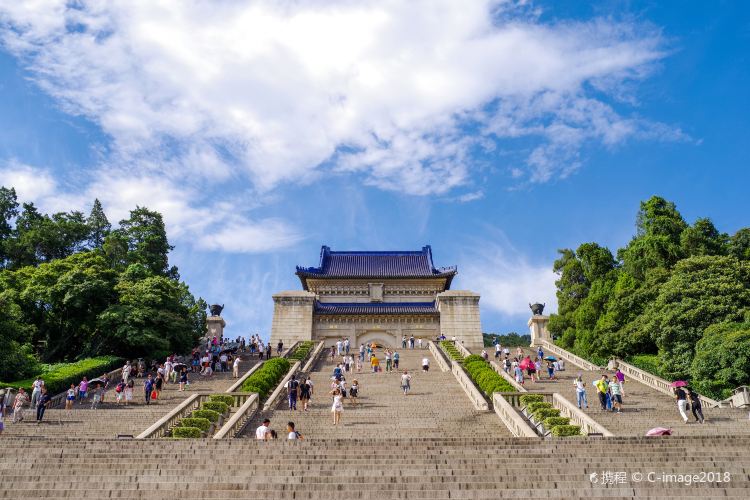
Zhongshan Mausoleum
Mausoleum of Sun Yat-sen, pioneer of China's modern democratic revolution, praised as 'the first mausoleum in modern Chinese architectural history.' Built into the mountain with magnificent grandeur, embodying Chinese-Western architectural fusion, it's Nanjing's iconic landmark.
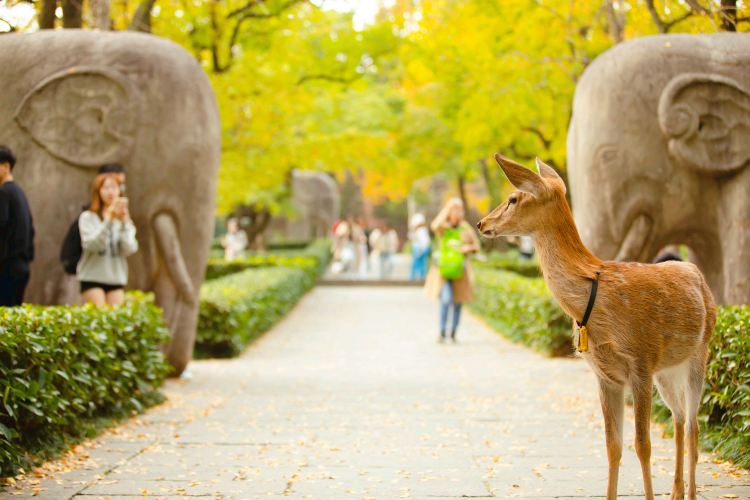
Ming Xiaoling Mausoleum
Tomb of Ming Emperor Taizu Zhu Yuanzhang and Empress Ma, a World Cultural Heritage site. The mausoleum is grand in scale with exquisite architecture, especially famous for its Sacred Way stone sculptures, embodying typical Ming Dynasty imperial mausoleum characteristics.
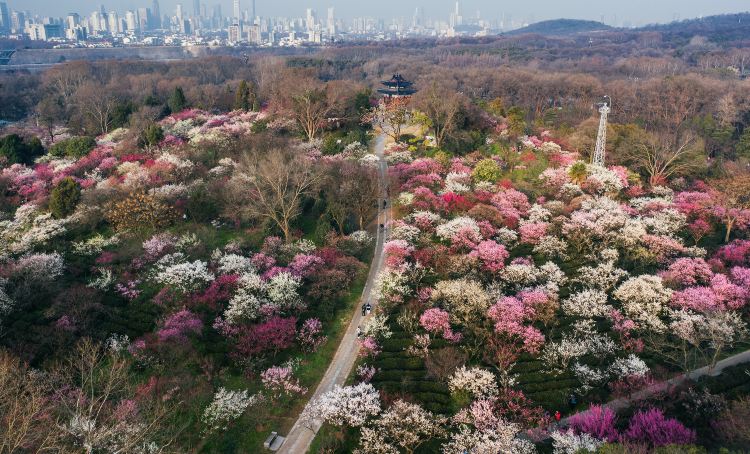
Purple Mountain
Nanjing's landmark mountain peak, called 'Jinling's Beautiful Mountain.' The mountain houses numerous historical and cultural sites including Zhongshan Mausoleum and Ming Xiaoling. Spring brings cherry blossoms, autumn maple leaves fill the mountain, perfect for climbing and distant viewing.
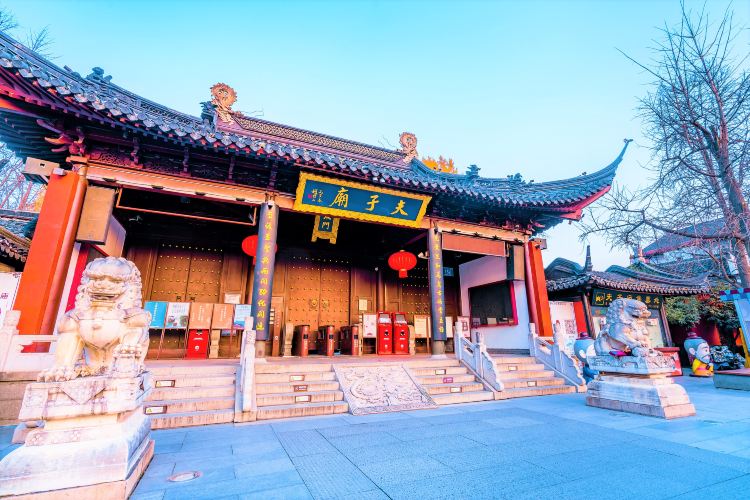
Confucius Temple
One of China's four great Confucian temples, dedicated to Confucius. The surrounding area is a bustling commercial district with numerous traditional buildings, snack shops, and cultural attractions, an important place to experience Nanjing's traditional culture.
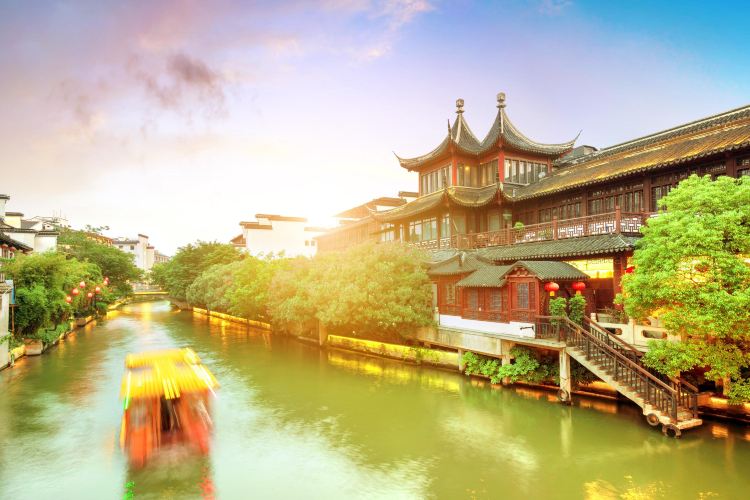
Qinhuai River
Nanjing's mother river, known as 'Ten-Li Qinhuai.' Ancient buildings line both banks, and at night when lights illuminate, boats shuttle through, recreating the poetic scene of 'paddle sounds and lamp shadows on Qinhuai River.'
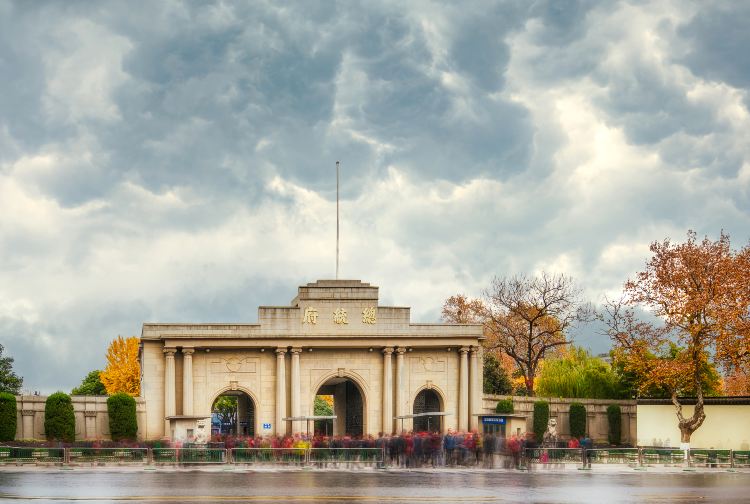
Nanjing Presidential Palace
Important site in modern Chinese history, once the Taiping Heavenly Kingdom Palace and Republic of China Presidential Palace. Rich exhibits showcase important chapters of China's modern political history, with Chinese-Western architectural fusion style.
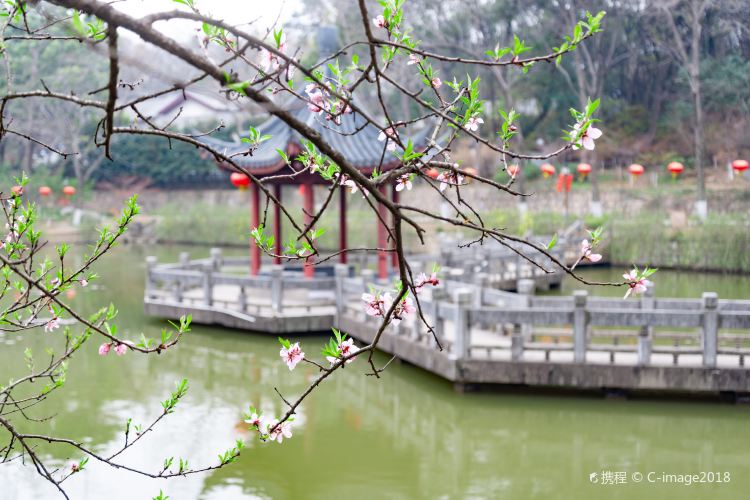
Qixia Mountain
Famous Nanjing scenic spot known for red maples, with the beautiful reputation 'Qixia Red Maples.' The mountain has historical and cultural sites like Qixia Temple and Thousand Buddha Rocks. Autumn's mountain-wide red leaves create spectacular scenery.
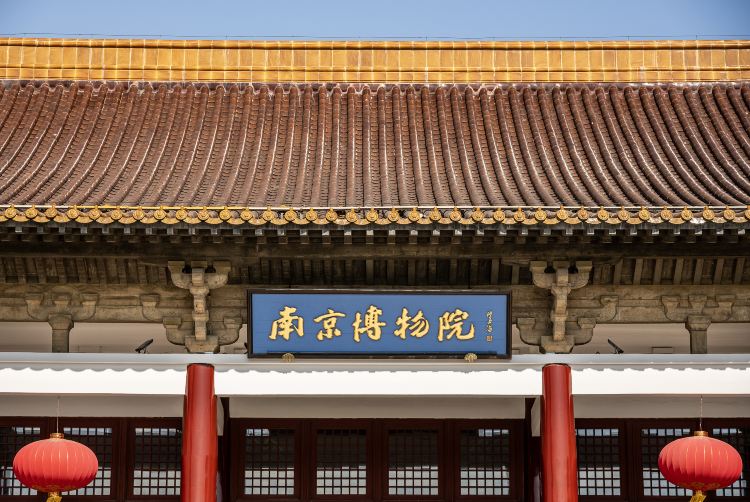
Nanjing Museum
One of China's three major museums with rich collections, especially Ming and Qing artifacts and modern historical materials. The building itself is a Republican-era masterpiece, an important window for understanding Jiangsu's history and culture.
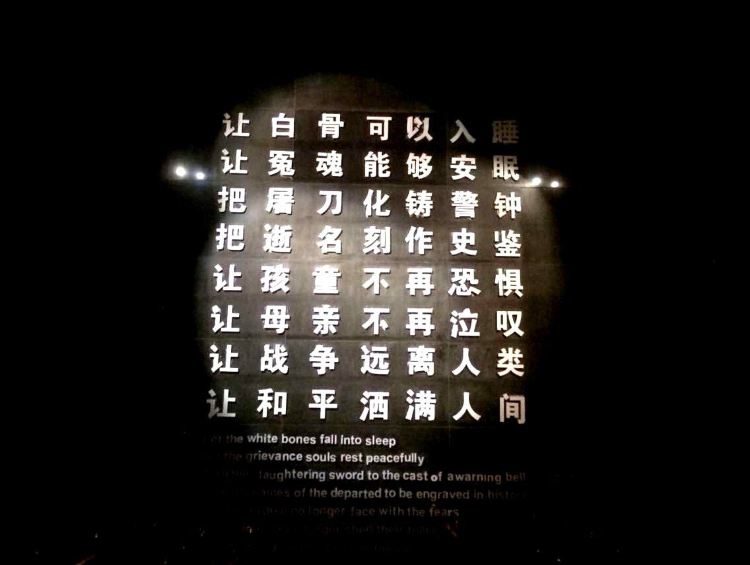
Memorial Hall of the Victims in Nanjing Massacre
Memorial hall established to commemorate Nanjing Massacre victims, an important place for patriotic education. Through extensive historical materials and artifacts, it records this tragic history.
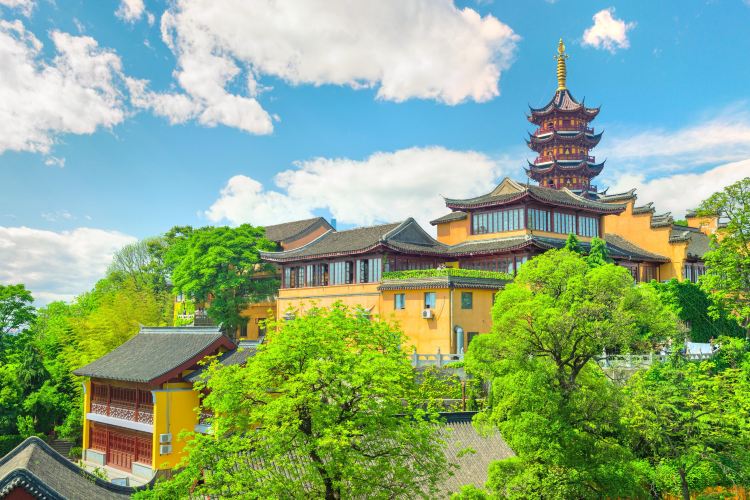
Jiming Temple
One of Nanjing's oldest Buddhist temples, called 'Southern Dynasty's First Temple.' Ancient trees tower within, spring cherry blossoms bloom magnificently, one of Nanjing's best cherry blossom viewing spots. Climbing the temple offers beautiful Xuanwu Lake views.
Local Specialty Foods
Nanjing Salted Duck
Nanjing's most famous specialty, white skin and tender meat, fatty but not greasy, fragrant and delicious. Exquisite production process, classic dish on Nanjing people's dining tables.
Hanfuxing, Guihua Duck, various delicatessen shops
Duck Blood Vermicelli Soup
Most popular street snack in Nanjing, with duck blood, vermicelli, tofu as main ingredients, fresh soup and delicious taste, nutritious, daily food for Nanjing people.
Huiwei Duck Blood Vermicelli Soup, street food stalls
Xiaolongbao
Nanjing traditional dim sum, thin skin with rich filling, abundant soup, slightly different from Shanghai xiaolongbao, even more delicious taste.
Yin's Soup Dumplings, Xiao Chuniang, various breakfast shops
Duck Oil Pancake
Nanjing traditional pastry made with duck oil, crispy outside and soft inside, aromatic, often eaten with pickled vegetables.
Traditional breakfast shops, Confucius Temple food street
Beef Pot Stickers
Nanjing specialty snack, crispy bottom, soft top, beef filling fresh and juicy, beloved traditional dim sum by Nanjing people.
Lu's Pot Stickers, various snack shops
Plum Blossom Cake
Traditional sweet, plum blossom-shaped, made with flour, filled with red bean paste, sweet but not cloying, common street food in Nanjing.
Confucius Temple, various scenic area snack stalls
Jinling Duck Casserole
Nanjing specialty dish with duck meat as main ingredient, paired with various vegetables, fresh soup and tender meat, embodying Nanjing people's culinary wisdom with duck.
Jinling restaurants, Da Pai Dang
Yuhua Tea
Nanjing specialty green tea, round and green appearance, tight and straight strips, elegant aroma, one of China's top ten famous teas.
Various tea specialty stores, Yuhua Terrace scenic area
Practical Tips
Best Time to Visit
Nanjing has distinct four seasons. Spring (March-May) cherry blossoms bloom; summer (June-August) is hot and rainy; autumn (September-November) is clear and refreshing with most beautiful Qixia Mountain red leaves; winter (December-February) is cold but fewer tourists.
Transportation
Nanjing has well-developed metro and bus systems, most attractions accessible by metro. Zhongshan Mausoleum and Ming Xiaoling accessible by sightseeing buses. Confucius Temple and Qinhuai River area best explored on foot. Recommend purchasing transit card or using mobile payment.
Accommodation
Recommend staying near Xinjiekou or Confucius Temple for convenient transportation and rich dining. Near Xuanwu Lake and Zhongshan Mausoleum offers beautiful environment but slightly distant. Hexi New City is highly modernized, suitable for business travel.
Cultural Etiquette
Maintain silence when visiting mausoleums; be serious and solemn in memorial halls; follow Buddhist etiquette when visiting temples; pay attention to photography permissions, especially at memorial sites.
Ticket Reservations
Popular attractions like Zhongshan Mausoleum, Nanjing Museum, and Massacre Memorial Hall require advance online reservations. Recommend booking 1-3 days ahead, especially during holidays.
Special Experiences
Can join Qinhuai River night cruises; spring cherry blossom viewing at Jiming Temple and Zhongshan Mausoleum; autumn maple viewing at Qixia Mountain; taste authentic Nanjing salted duck; experience Nanjing dialect and Jinling culture.
Conclusion
Three days in Nanjing let you deeply experience this ancient capital's historical depth and cultural charm. From Zhongshan Mausoleum's solemn dignity to Qinhuai River's poetic romance, from Ming Xiaoling's imperial grandeur to Confucius Temple's scholarly elegance, Nanjing showcases Chinese civilization's profoundness with its unique historical and cultural heritage.
Nanjing is not only a historical famous city but also a cultural capital carrying national memory. Every ancient site here witnesses history, every delicacy contains cultural inheritance.
If you have more time, recommend visiting Tangshan Hot Springs resort, touring Niushou Mountain Buddha Palace, visiting Jiangning Weaving Museum and other attractions. Nearby cities like Yangzhou and Zhenjiang are also worth visiting for a more comprehensive understanding of Jiangnan culture.
Itinerary Highlights Summary
- 1Pay respects at Zhongshan Mausoleum, commemorate Dr. Sun Yat-sen, experience modern democratic revolution history
- 2Explore Ming Xiaoling, admire Ming Dynasty imperial mausoleum architectural art and Sacred Way stone sculptures
- 3Night cruise Qinhuai River, experience the poetic sentiment of 'paddle sounds and lamp shadows on Qinhuai River'
- 4Visit Presidential Palace, learn important chapters of Taiping Heavenly Kingdom and Republican history
- 5Tour Qixia Mountain, enjoy spring cherry blossoms and autumn maples, feel harmony of nature and culture
- 6Taste Nanjing salted duck, duck blood vermicelli soup and other authentic cuisine, experience Jinling food culture